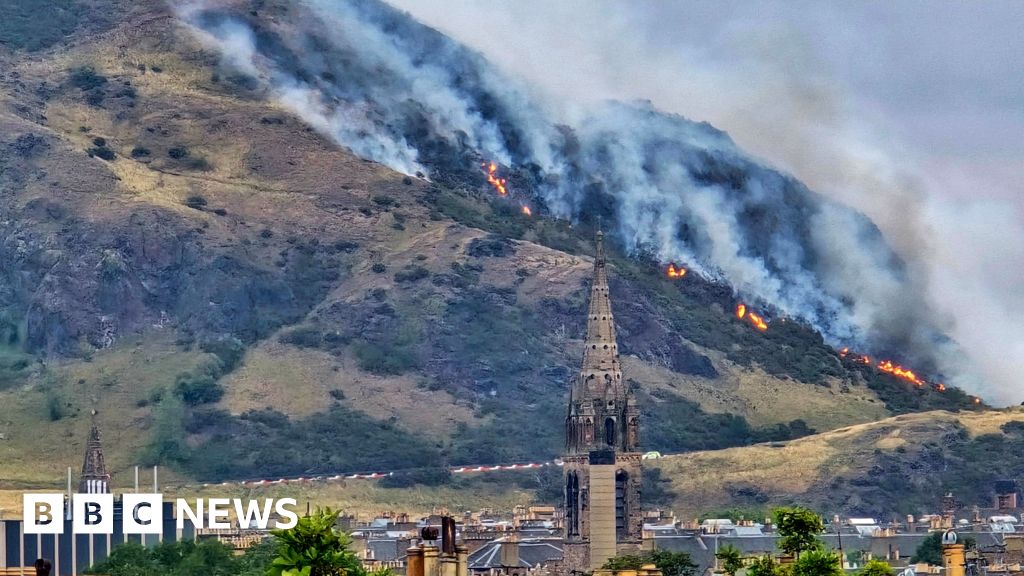Arthurs Seat blaze likely caused by human activity - fire service
- BBC News
A large fire on Arthurs Seat in the centre of Edinburgh was almost certainly sparked by human activity, a Scottish Fire and Rescue service group commander has said.
Neil MacLennan said that the exact cause of the blaze was not yet known but that a deliberate act could not be ruled out.
The fire, which spread rapidly across the hill in Holyrood Park on Sunday afternoon, was brought under control overnight.
The area was evacuated as the flames spread and there were no reported casualties.
Mr MacLennan said the "challenging" fire spready quickly through gorse and heather on the steep hillside.
Asked how the blaze started, he told BBC Radios Good Morning Scotland: "We dont have specifics … but what we can pretty much be certain of is it would have been some form of human behaviour or intervention of some sort.
"Its very rare for any natural wildfires to start in this country.
"How that manifested we dont know at this stage but there will have been some form of human interaction and thats part of the risk for that area – it is a busy area.
"The risk is there for that type of fire to start."
Arthurs Seat rises above Edinburgh from near the Scottish Parliament. Offering views of the city, it is a popular climb for locals and visitors.
The hill also caught fire in February 2019, with dozens of firefighters working through the night to extinguish a large gorse blaze.
The Scottish Fire and Rescue Service has issued several wildfire warnings this year, with the country seeing a particularly warm and dry summer.
Blazes that burned across moorland at Carrbridge and Dava in the Highlands earlier this summer have been called the biggest wildfires Scotland has ever seen.
Professor Rory Hadden, chair of fire science at the University of Edinburgh, agreed that most wildfires in Scotland were caused by human activity.
He told Good Morning Scotland: "Some of these can kind just be people in the countryside trying their best to enjoy themselves and making some mistakes."
Prof Hadden said wildfires in Scotland were becoming larger, more common and more difficult to put out.
With climate change was causing more extreme heat in the summer and milder temperatures in winter, the expert said this led to the growth of more vegetation, providing more "fuel" for fires.
He added that changes in land use, such as an increase in rewilding as well as rural depopulation, were also contributory factors.
The fire service said four appliances and specialist resources were sent to Arthurs Seat after the alarm was raised at about 16:05 on Sunday.
It said two appliances remained at the scene on Monday.